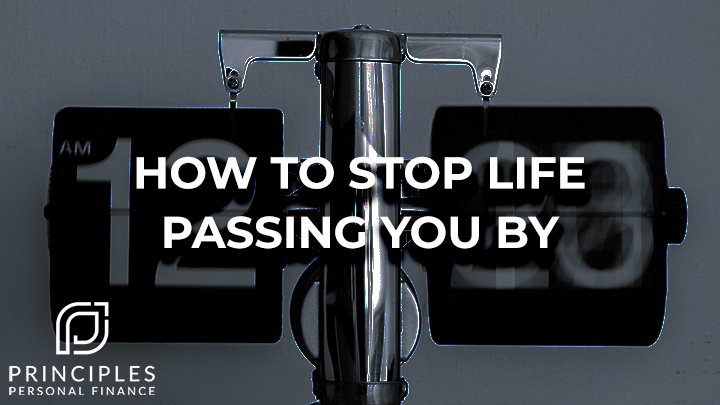How to stop life passing you by
At the end of the year, I received answers back to what 3 things mattered the most to you. The running theme was things that had been missed out or things that were being looked forward to post-pandemic restrictions. It was something that resonated with me as I’d had similar conversations recently about trying to organise plans to make up for the ‘missed time’ that we’ve all experienced in the last 2 years. The time spent away exploring different places, spent marking occasions with family and friends or trying something new and novel. During the pandemic, most of these events that would normally leave imprints in our memory have been gone. The usual time-stamps of birthday parties, holidays and experiences are normally etched into our minds and define our year in hindsight.
The perception of time
Time defined by Einstein may be specifically measurable, but you don’t experience your life through a physics experiment. You experience it as a living, human being. So it is not the time that passes but your experience of it which makes the difference.
We have our experience of memory, emotion and sense which makes time somehow located in space. Time may well be at the heart of how we live our lives, but the key is how we experience it. You only need a night of deep sleep or sedated operation to realise that your consciousness defines the time for you more than any clock. This is where in the last 2 years lockdowns have put us in a near-constant state of repetition, with little noticeable change the days sort of blur into one. While time itself may have felt like it was passing slowly in the present, when looking back it is difficult to define anything memorable that happened. There were no marked events to fill the video archive of our memory and therefore nothing particular to remember which condensed our perceived experience.
Your last holiday
Let’s go back to your last holiday abroad. You can probably remember vividly the airport, the seat on the plane, staring across the aisle at the bored passengers putting their headphones on or vacantly staring out of the window. Perhaps you can remember waiting at the hotel to check-in, how long the line was, the first day or 2 at the restaurant. The first visit to the pool or the beach.
How vividly can you remember the remaining 2/3rds of the holiday? Is that perhaps a bit of blur which seems to be more difficult to recall? As if that part of the holiday didn’t exist and the next thing you knew you have sat again in the seat of the plane and on your way home.
How much that will resonate will depend on to what extent that part was filled with what you did on the last 2/3rds. If it was laying by the pool, it probably strong resonated. If you changed hotels and went on day trips in the last 2/3rds, probably less so.
The great reset
Human nature is such that you don’t appreciate what you have until it’s taken away. While it is very fair to look back upon the last 2 years and lament our lost experiences (I know I have), perhaps if anything, we can use this experience as a positive? Like many experiences sometimes understanding what is wrong is the best way to forge the path to what is right. Instead of this strange, pandemic-restricted life, we’ve been forced to lead. What if you lived your entire life unaware of how to best use your time?
Let’s think about the main events of our life, whether it be in the present or for our retirement. We have choices about how we set up this time and how we set up our time will have a direct relationship with how we experience it. If the unexamined life is not worth living, can we now be mindful of this and plan our lives to increase those moments of enjoyment? To accept what we may have missed out on during this time but vow to not let this happen again? To push forward into investing in new experiences, take up activities at the weekend and visit new places as opposed to the same pub or cinema. While the fun we’re having at the time may mean the time will fly, the variety of the experience will forge more memories so that we can look back and feel more content with our time.
Similar to the video I did on how money CAN make you happy. If we can take the lessons of the past 2 years and try and take the positives that there could be a structure we can apply to get the very most out of our experience. What if going forward we used this time to realise that letting life feel like it was passing us by was in fact - a choice?


